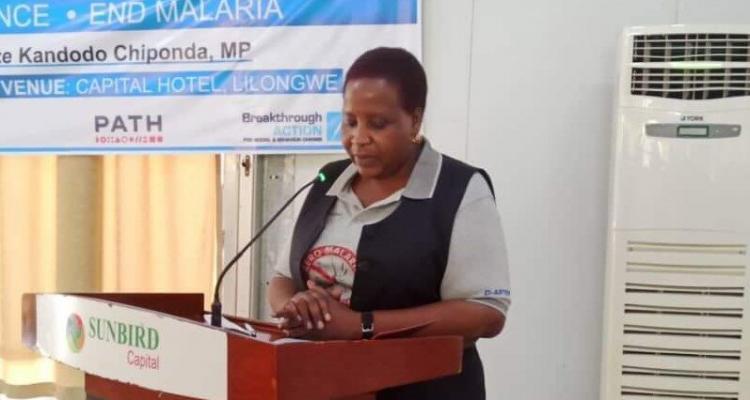
Minister of Health Khumbize Kandodo Chiponda has disclosed plans to roll out Malaria vaccine in the country by end of this year.
The Minister of Health Khumbize Kandodo Chiponda made the remarks in Lilongwe today during an event marking World Malaria Day which was being commemorated under the theme ‘Advance equity, Build resilience, End Malaria’.
Chiponda said only a few districts will be prioritized as production is currently low.
“To show further commitment to end Malaria, Government through my Ministry has made an important decision in line with WHO recommendation to roll out the Malaria Vaccine in this country beginning end this year 2022. We will start with areas that were not receiving the Malaria Vaccine in all Malaria Vaccine Pilot districts, then later in 2024, roll out to other districts. We will not be able to roll out everywhere at the beginning as we wished, due to limited quantities of Malaria vaccines available globally. As time goes, it is our hope that manufactures will grow their production and meet the demand by all countries requiring the Malaria vaccine”, said Chiponda.
The Minister made an emphasis that the Malaria Vaccine is just an additional tool in the fight against Malaria, though very important, but on its own it cannot eliminate Malaria in Malawi.
Other effective interventions like Indoor Residual Spraying, Use of bed nets, seeking health care immediately and positive behavior change towards malaria prevention must continue being implemented as important interventions to end Malaria.
The Malaria Vaccine is targeting children aged between 5 months and 22 months, therefore, the rest of the people will still depend on other malaria preventive measures for protection from Malaria.
The targeted districts include Chikwawa, Nsanje, Lilongwe, Karonga, Nkhata Bay, Ntchisi, Phalombe, Mchinji, Mangochi, Machinga and Balaka.
Today Malawi commemorated World Malaria Day, with a theme “Advance Equity, Build Resilience, End Malaria”.
According to the Minister, by the end of last year, Malawi had reduced the Malaria Prevalence from 24% in 2017 down to 10.5% in 2021.
“We had also reduced deaths due to Malaria by half the numbers of Malawians who were dying in 2017. However, we still have a way to go because the numbers of Malaria cases per year are still too many (about 6 million), it is the responsibility of me, you and everyone else to protect ourselves, individually, as families and as communities, this is what will end Malaria in Malawi,” said Chiponda.














